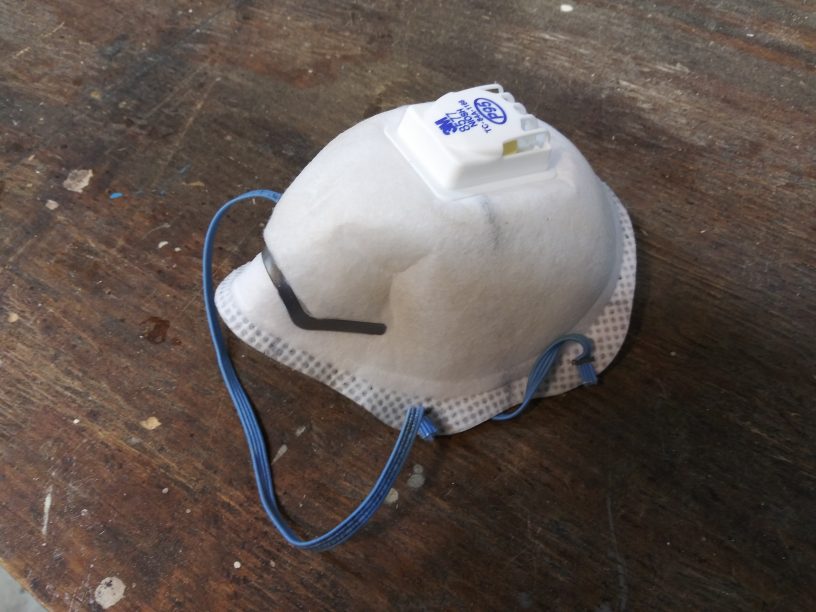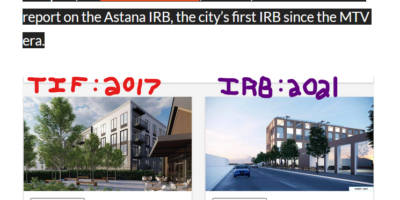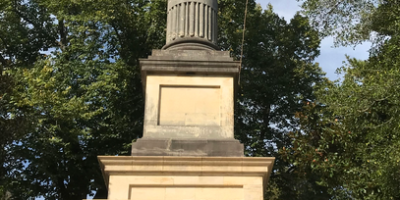It is slightly more than a month since North of Center published new writing. I cannot speak for this site’s other contributors, but for me, the story that dominates our present time has suppressed any enthusiasm I might have had for even tracking, much less commenting on, the machinations of the central Kentucky government and policy. Like, I suspect, a lot of people, my morning routine involves coffee and finding quick answers to a few simple questions:
- Have the numbers gone up again?
- Is there a treatment or vaccine yet?
- Have we flattened the curve?
So far, the answers have been yes, no, and no. It will be a good day when any of those answers change.
But until they do, I struggle to know what to say, what to contribute that feels in any way meaningful. On social media there is outrage, for the failures of political leaders and ordinary citizens alike; there is compassion, for doctors and nurses and supermarket delivery drivers; there is sorrow for the dead and dying; and there is black humor, which seems both absolutely correct and entirely inappropriate. It becomes exhausting, even more than usual. We are perhaps being asked to feel too much.
So now I have no opinion, despite the site category to which I’ve assigned this short piece. Instead, I have only more questions, about what our normal will look like when we finally do get back to it. Will we see substantial changes to the social order? An economic revolution of some kind? A shift in cultural priorities? And I pose those questions to you, readers, in the hope that you have some answers.
Work and the economy. Layoffs and furloughs continue, and the Kentucky unemployment insurance web page has struggled to stay functional under the deluge of newly unemployed. Meanwhile, many of those able to work from home are finding out that they might well have been doing so all along. I’ve read pundits proclaiming the need for a rethink of capitalism itself, and I’ve read politicians who appear willing to sacrifice their constituents in order to save it. But will this be 1848, or business as usual? Or something in the middle?
Politics. Many have recently written variations on a theme: red or blue, the virus doesn’t care what your politics are. We should all band together, as one, and find ways to reconcile our ideological differences. Sure—sounds great. But is that likely or hopelessly naive? Andy Beshear has rightly earned national praise for his reassuring demeanor and decisive actions; but when it’s over, will he have a new allies in Frankfort, or will we snap back to stonewalling and backstabbing?
Incarceration. As anyone could have predicted, at a time when we should be remaining as far apart from one another as we can, our overcrowded jails have become petri dishes. We’ve tried prison reform in Kentucky, but it won’t seem to take. Now even an overnight stay for a petty misdemeanor borders on the cruel and unusual. Will we take take meaningful, lasting steps to reduce our population of the incarcerated, or are any future efforts as doomed as the previous?
Food. We may be discovering that our global supply chains are more fragile than we realized, and that centralized agriculture—monocultures, in many cases—are too vulnerable to disease and pestilence. Will our experience today help push us to a more locally based, decentralized system of food production and distribution? Or is there an even better way?
Environment. We’ve seen pictures of the Venetian canals running clear in the absence of humans to muck them up, and I’ve read anecdotal evidence of an increase in bees and birds in various places, and a decrease in smog in others. The message seems to be that nature does pretty well for herself if we stop polluting so much, which, come to think of it, makes a lot of sense. But will we learn this lesson? I’ve read those asking our species to take the threat of climate change as seriously as we’re taking that of the virus. Can that happen?
I don’t know the answers to any of these questions, but perhaps they might start some discussion. What are your thoughts? Post your comments here or on Facebook. We’d appreciate hearing from you.





Christian Pyle
EDUCATION. Higher education has been moving toward an all-online model for awhile. That model allows colleges to eliminate a lot of faculty and replace them with prefab courses that can be purchased from vendors. One size fits all. Regents and trustees tend to be corporate execs who want to do to education what they’ve already done to manufacturing and are doing to retail. As every college in the country is now online or shuttered for the rest of 2019-20, I wonder if in-person classes will every fully return.
Keith Halladay
Yep, and that was a glaring omission on my part. Thanks for the addendum. And yes, I think you’re right. I wonder what we’ll lose, as a civil society, by the loss of in-person instruction.
bcm
Well, as I type this my professor spouse is on the phone with a student having a detailed conversation about the student’s paper – and they are a half hour in. So, while there is genuine concern about the online shift gaining significant momentum during this time, one on one instruction still seems vital in the early returns. But the landscape is definitely changing – we’re gonna need a new map.
Keith Halladay
Well, in my 20 years teaching, I watched the world kind of pass me by. One of the reasons I quit was because I discovered that my skillset was no longer of much value—I was great in the classroom, speaking, gesturing, writing stuff on the chalkboard, that sort of thing. By the end, it had become clear that neither many students nor many administrators cared too much about that, while I didn’t care about much *except* for that. It’s funny, because once upon a time, 2003 or so, I taught myself HTML and CSS for the sole purpose of creating a web site for class materials, then later built a Moodle site for that same purpose, well before UK or BCTC had officially adopted Blackboard/Canvas. I saw it as a useful supplement to in-class instruction, but certainly not a replacement. As for your spouse, I suspect she will adapt to the new paradigm very well, though perhaps not without some sadness and longing for what used to be.
Michael Benton
I work at a college (I am tenured and realize that privilege – but fuck why is that not the norm) where I have a 150 students. That half hour conversation times my number of student equals (I know, but I think we all need the math exercise).
I’m doing everything I can in this time of pandemic, especially because I have deep empathy for what my students may be going through (why I won’t use the empty and insulting platitudes my college encourages me to use – rather than actually talk and engage with them).
I’m just really worried this is going to become the norm after this is all over…
Billie Mallory
Wow, much more than I want to contemplate, I just want to get through another day-alive-and know that my family and other loved ones are surviving. What has been glaring to me has been the lack of local leadership. Can’t say enough about Amazing Andy, occasional press conference updates from our Mayor but those who are closest to us, such as Council members, are unusually not visible, nor audible. In some districts, they were already ‘absentia’ but this is the time to step up, speak out, offer reassurance and ‘be with us’, keeping a safe distance but make their presence and leadership known.
Keith Halladay
I tend to agree about the relative invisibility of council members. It’s difficult to know what to ask of them right now, beyond offering the reassurance you mention, but you’re right—even a few public words would be good. Stay safe!